There’s a moment every seasoned mountaineer remembers: standing at the foot of a peak that will soon become their first climb. The nerves, the anticipation, the rush of standing at the summit and looking down at the world below. It’s an addictive feeling, and if you’re reading this, you’re probably thinking about how to start mountaineering yourself.
At Adventure Base, we’ve helped thousands of adventurers take their first steps into the world of alpine climbing. As a leader in Alps peak summit tours, we know what it takes to go from first-timer to confident climber. And while solid training and expert guidance are essential, sometimes it’s the little things, the clever hacks, that give you the marginal gains needed for success.
Here are some of the best mountaineering hacks for beginners, drawn from our years of experience guiding in the Alps. Scroll down to get started, and if you think of any questions as we go, please just get in touch.
Alpine Climbing Hack #1: Build Climb-Specific Fitness
Mountaineering fitness isn’t about looking good in the gym — it’s about building functional endurance that lets you move efficiently at altitude. That means long days on your feet, steep climbs with a loaded pack, and enough strength to scramble confidently across mixed terrain.
One of our favourite beginner mountaineering tips? Replicate mountain conditions in your training. Load up a backpack and find the steepest hill, staircase, or trail near you. Train your calves, quads, and core to handle relentless uphill movement. Incorporate balance work and core strength to stay steady under load.
If you want more fitness and conditioning guidance, we cover this in detail in our blog on How to Prepare Before Climbing a Mountain in the Alps. It’s the perfect companion piece to this guide, and along with our general training advice, you’ll have the perfect starting point for pre-climb training.
Of course, not all climbs are equal, so we provide more detailed, climb-specific training guidance for people after they book onto individual tours. This includes programs tailored to the nuances and demands of the adventure you choose.
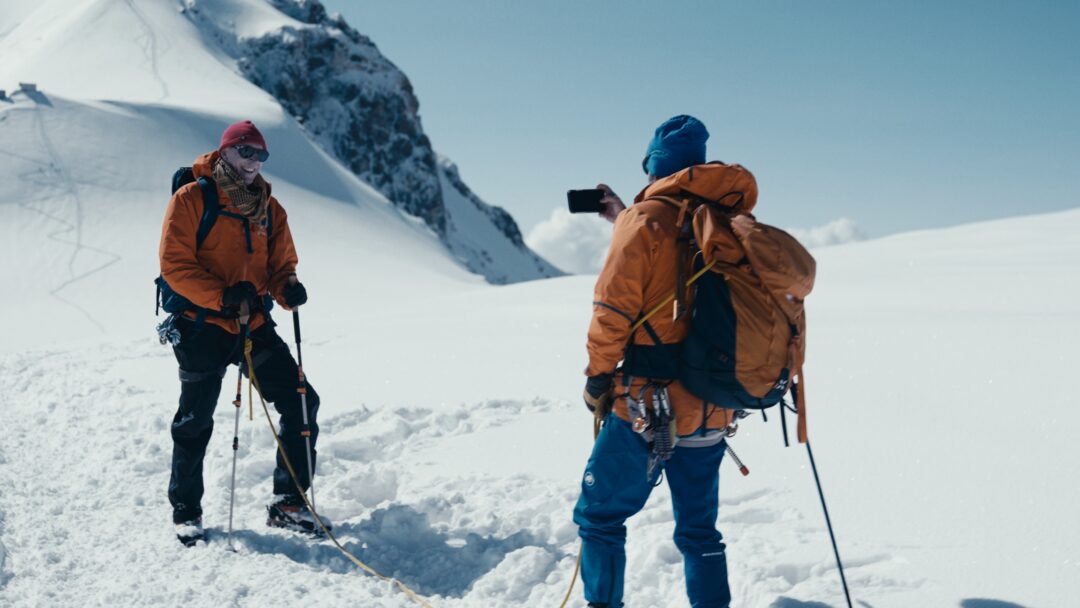
Alpine Climbing Hack #2: Master the Art of Layering
The mountains have a habit of throwing four seasons at you in a single day. Wind, sun, snow, rain… sometimes all within an hour. That’s why understanding how to layer properly is one of the most essential mountaineering safety (and comfort) tips.
The key is flexibility: base layer (moisture-wicking), mid layer (insulation), outer shell (windproof and waterproof). And that’s just the start! But here’s the hack — always pack a dry base layer and a spare pair of gloves in a dry bag. Even on a summer climb, sweating through your base layer early in the day can leave you freezing by afternoon.
If you’re building your kit from scratch, you can find a dedicated gear and kit list for each of our climbs in the Alps. Simply head to the dedicated page for the climb you want and scroll down until you find it! For example, if you’re eyeing up Gran Paradiso as your first summit, here’s the full Gran Paradiso kit list.
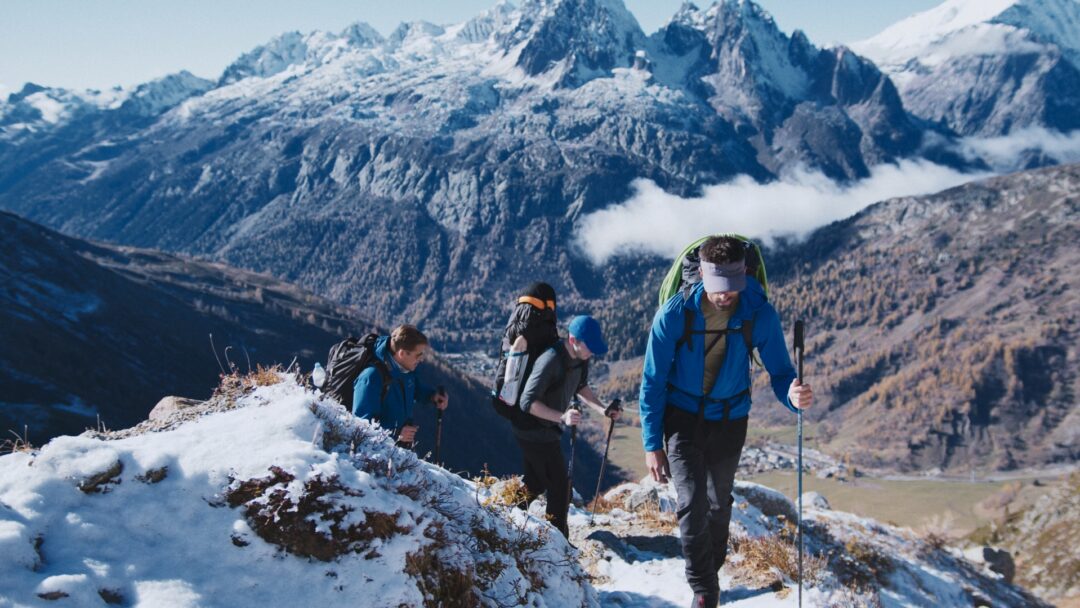
Alpine Climbing Hack #3: Pack Light, But Pack Smart
We see it every season: beginners hauling up gear they don’t need, or forgetting something crucial like a head torch or snacks. Don’t worry, we’ve all been there! The trick is not just to pack less, but to pack with purpose.
Our go-to hack? Divide your kit into categories using colour-coded stuff sacks or ziplock bags — food, spare layers, first aid, waterproofs — and stash the things you’ll need most (gloves, water, snacks) in the top or hip pockets of your pack. And if you’re on a guided experience like our Mont Blanc climb or Monte Rosa spaghetti tour, your guide will help review your gear before you set off.
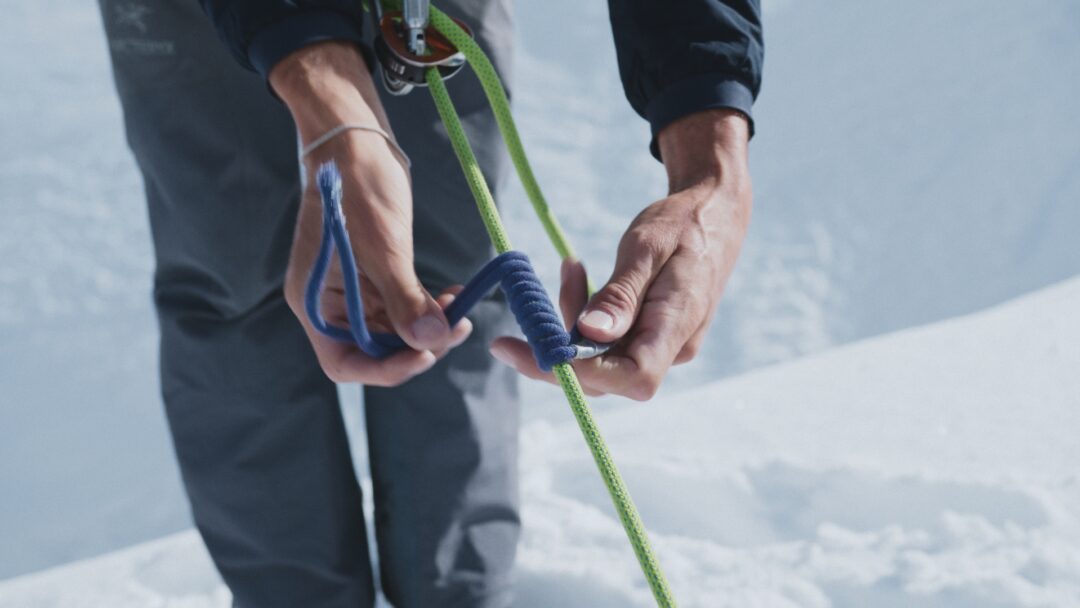
Alpine Climbing Hack #4: Get Comfortable with Basic Rope Skills
If you’re heading into technical terrain where snow, rock, and glaciers meet, you’ll be roped up. While you don’t need to be an expert to join an alpine climb as a beginner, having a few rope basics under your belt will make you far more comfortable.
Our advice? Learn how to tie knots essential to mountaineering, like the figure-eight, clove hitch, bowline, prusik, double fisherman’s, and munter hitch. Consider joining either our Winter Alpine Skills Course in Chamonix or our Ice Climbing Intro Course, also in Chamonix. Both offer beginners a vital gateway to learning mountain climbing skills in high mountain environments.
Understanding the fundamentals builds confidence, and your guide will help you apply them in real mountain situations. And for even more expert insights into developing your skillset, be sure to read our blog How to Improve Your Mountaineering Skills when you have finished here.
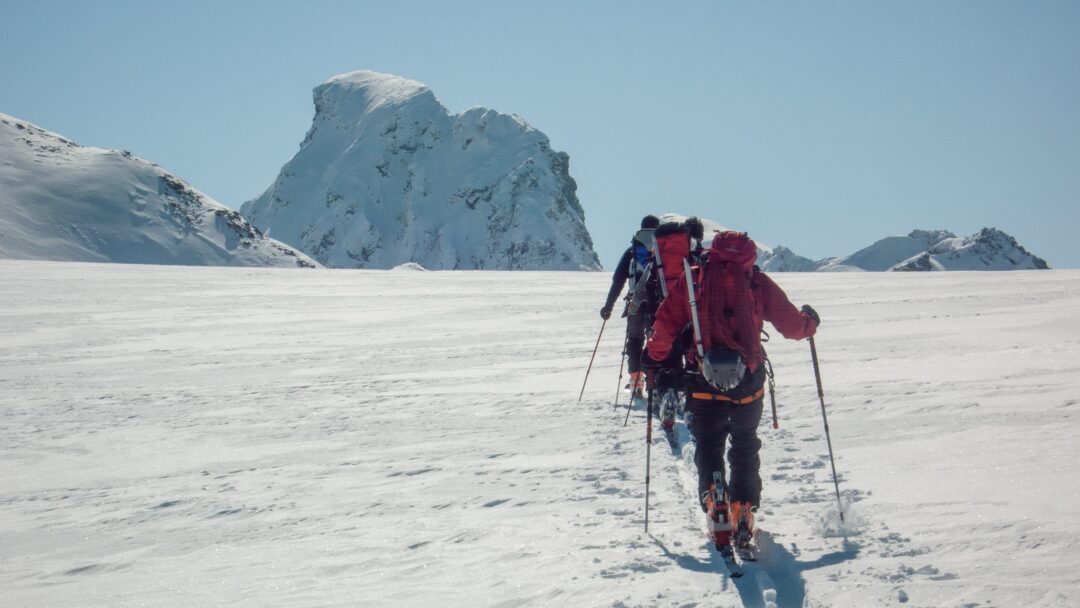
Alpine Climbing Hack #5: Use Trekking Poles
It might sound simple, but trekking poles can be game-changers, especially on long approaches and descents. They reduce pressure on your knees, improve balance, and give your arms something to do when your legs are tired.
Here’s the hack: shorten them slightly for uphill sections to keep your posture upright, and lengthen them on the descent for added stability. Trust us, you’ll be glad you brought them!
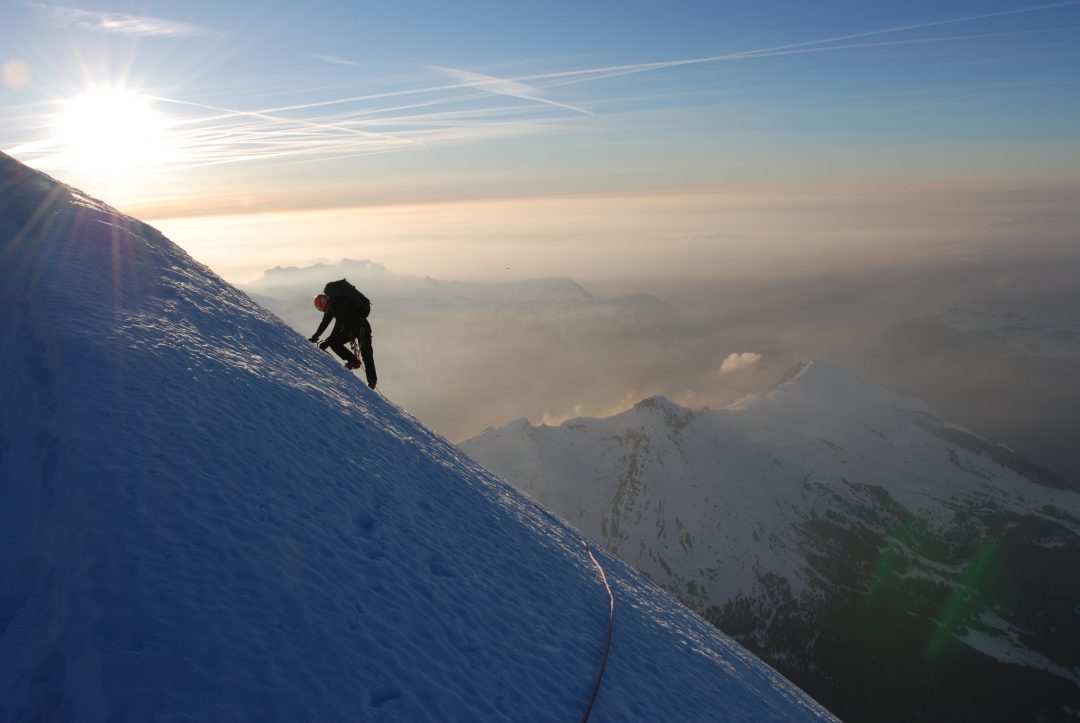
Alpine Climbing Hack #6: Know the Difference Between Hiking and Climbing
One of the most important things to understand as a beginner is that hiking and mountaineering are not the same — and neither are the risks. Mountaineering involves technical terrain, potential glacier crossings, and exposure to hazards like rockfall or crevasses.
We dive deeper into this in our blog about the difference between hiking and mountain climbing. But the key takeaway is this: when ropes, helmets, crampons, or ice axes are involved, you’ve stepped into true alpine terrain, and that requires specific training and preparation.
If you prefer the idea of hiking, we’ve got an incredible range of Guided Treks in the Alps! Check them out and see if they make a better fit for you.
Book Your Alps Summit Climb with Us!
No one becomes a mountaineer overnight. It’s about progress, not perfection. These beginner mountaineering tips aren’t just hacks; they’re lessons passed down from guides and climbers who’ve made every mistake in the book!
If you’re wondering how to start mountaineering, the best place is with solid advice, great people, and incredible mountains. That’s where we come in. Whether you’re dreaming of summiting Mont Blanc, Gran Paradiso, or something further afield, we’re here to help you take the first step.
Explore our full range of mountain climbs in the Alps and see what stirs your sense of adventure. And if you have any pre-booking questions for the Adventure Base team, please don’t hesitate to contact us.

